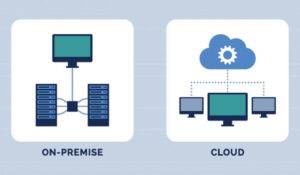Tony Dolan of Connect Managed makes the case for moving to the cloud by demonstrating how it can remove pain points.
Every business that relies on contact centres to engage with customers will know how important the customer experience is. You can win customers over with your customer experience but risk losing them when things go wrong.
Getting the contact centre experience right is a tough task, at least according to the CFI Group, who found that the private sector, in particular, is not making much progress. Cloud contact centre technology could help.
Contact Centre Pain Points
To understand why cloud contact centre technology can be so transformational, let’s take a look at the most common contact centre pain points from the customer’s viewpoint:
Lack of Availability
Contact centre leaders must balance costs against customer service goals. Because contact centre demand is often unpredictable, companies rarely cater sufficiently for busy periods in order to avoid excessive overcapacity at other times.
For customers, this inevitably means frustrating hold times at peak demand. Traditional on-premise contact centre technology simply cannot scale with the elasticity that variations in demand require.
Unresponsiveness
The contact centre journey at its worst is notoriously frustrating, with most contact centre environments putting up plenty of hurdles, leading customers to become increasingly irate even dealing with simple issues.
Businesses are not intentionally making life tough for customers. Instead, many current environments are just too unwieldy, while contact centre agents frequently don’t have access to the right information, at the right time because of a lack of integration.
First Contact Resolution
Perhaps the most frustrating problem of all, customers too often find that getting in touch with a contact centre does not lead to the successful resolution of their problem first time.
This occurs for a mix of reasons, and current contact centre deployments are rarely capable of determining the root cause of unresolved issues. Yes, a customer may hang up and try again, but customers may also decide to walk away.
When a business cannot solve common contact centre pain points with any degree of ease, it is not so much due to a lack of effort more the simple fact that legacy contact centre deployment models do not readily allow for the necessary flexibility, intelligence, and affordability to do so.
Why Cloud Contact Centres Can Boost the Customer Experience
Cloud-hosted technology solutions are steadily building a reputation in several areas, and this is the case for cloud contact centres too.
Businesses examining how to improve customer experience in the contact centre should take a close look at the following key benefits that are core to cloud-hosted solutions:
1. Scalability
We’ve suggested that cost imperatives can be a big obstruction to a good customer experience. Cloud-hosted solutions significantly change the picture because cloud solutions are intrinsically scalable. In contrast to a local on-premise solution, cloud capacity can be scaled up or down instantly.
Solutions such as the Amazon cloud contact centre product, Amazon Connect, go further by billing based only on usage, which is essentially infinite scalability and takes away the over-investment problem.
When businesses don’t risk paying for excess capacity, it is possible to invest sufficiently to ensure availability no matter how extreme the demand peak.
It is easy to see why callers who get swift access to contact centre agents will usually walk away with a positive view of the customer experience.
2. Flexibility
Contact centre solutions are often much too rigid. Yes, the result is serviceable, but the customer experience is anything but optimal.
Cloud technology offers far more flexibility and agility in several ways.
First, cloud solutions are constantly improving, offering new features and capabilities on a continuous basis.
Businesses can, therefore, roll out an improved customer experience much faster when compared to more static in-house solutions.
Cloud solutions also tend to offer much more in the way of customization, allowing for highly bespoke call centre flows that help callers get where they need to be faster, with fewer of the typical hurdles along the way.
3. Natural Language Processing
Some contact centre solutions offer simple, but workable, voice recognition that gets users through the various stages of their journey – albeit haltingly. It’s not always a smooth experience and occasionally interactive voice response will completely block a caller to the extent that they need to hang up and call again.
Cloud solutions can draw on more sophisticated natural language processing, thanks to the capabilities of cloud vendors such as Amazon. It’s a far more customer-friendly solution, with AI-enabled speech recognition offering more accurate routing responses in natural language to offer a personalized experience.
Voice technology can also integrate into your existing IVR system to enhance your customer experience.
4. Machine Learning
We know that customers frequently find that their contact centre needs are not effectively met with a first call or even subsequent calls.
Yet it is difficult to tell, in aggregate, why customers end up unhappy with their customer experience.
Few businesses can invest the time resources needed to analyse customer data to any great extent as it’s simply too onerous a task.
Cloud contact centre technology backed by machine learning and other AI technologies can help fill the human resources gap, automatically analysing thousands of customer interactions.
As a result, companies get to understand the root cause behind poor contact centre experiences, and indeed whether a poor experience is due to the contact centre at all.
5. Connected Technology
Finally, cloud-based contact centres can more effectively link with other cloud-hosted enterprise systems. With cloud adoption now so widespread, many companies will find that much of their IT provisioning is now hosted in public or private cloud solutions.
An all-cloud technology environment ensures that no system operates in a silo, so call centre agents working with a cloud contact centre platform have access to full customer details stretching across business systems. This makes agents more responsive and improves the chances that a call will be a customer service success.
Benefits Go Beyond the Customer Experience
It is not only your customer that will thank you for adopting a cloud contact centre environment. Agents will appreciate the ease of use, with cloud-centric systems smoothing sometimes tricky workflows.
Last but not least, as is often the case with applications that move to the cloud, the cost savings in shifting from an on-premise contact centre solution to a cloud solution could be significant.
Yes, it enables better provisioning for busy periods, but chances are the overall costs of your contact centre technology will drop too.
Getting Started With Cloud Contact Centres
Cloud contact centre solutions for larger businesses should deploy expert advice from a contact centre partner that really understands the customer journey.
Connect can help. We are vendor-agnostic so we are able to advise whether your business would be better suited to an on-premise solution, a move to the cloud or a hybrid of both.
Get in touch if your contact centre solution is simply not meeting expectations. We would be happy to outline how adopting the cloud can improve the customer experience in your contact centre.
Author: Robyn Coppell
Published On: 8th Aug 2019 - Last modified: 14th Aug 2019
Read more about - Guest Blogs, Connect Managed















